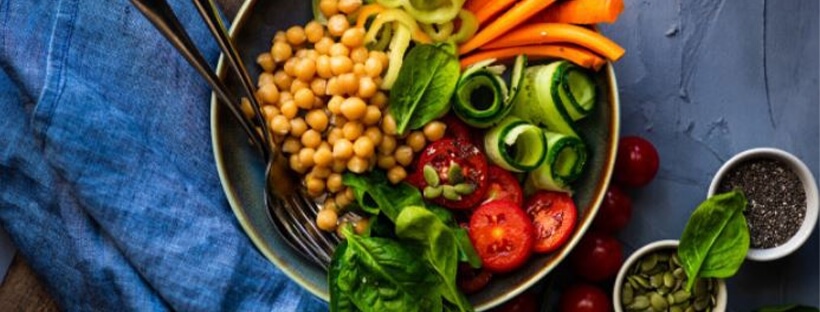9 Easily Available Foods that can help increase your feed
 27403
27403

super easy
For most women, breastfeeding is an integral part of motherhood. Breast-feeding is a way of bonding with the baby, so it can get quite frustrating for both the mother and the child if the milk supply is low. Of course, you can always ask your doctor to prescribe some supplements to increase your breast milk, but here is a list of some easily available foods you can consume to help increase your feed, naturally.
1. Fennel seeds (saunf)
Fennel seeds have several benefits for lactating mothers. Apart from helping to increase milk supply, fennel seeds are also known to help reduce gas and acidity. The benefits of fennel seeds also get passed to the baby through breast milk and help manage colic. Fennel seeds can be soaked overnight in a glass of water and consumed in the morning. They can also be brewed to get maximum benefits. Add fennel seeds to your tea and whatever else you can.
2. Tragacanth Gum (GondKatira)
Goond is very popular in the Indian subcontinent and is known for increasing the milk feed. It is one of the many things that are fed to new mothers. Goond is generally added to panjeeris and ladoos along with dry fruits such as almonds, raisins, melon seeds, etc. These are also known to give energy to the breastfeeding mother, who loses a lot of calories while feeding.
3. Fenugreek Seeds (Mathidaana)
Fenugreek seeds are rich Omega-3 fatty acids, which are highly beneficial for the baby’s development. Many new mothers are known to lose a large amount of hair due to protein and vitamin deficiencies after delivery. Fenugreek seeds are also very beneficial for hair. Fenugreek seeds can be added to a number of Indian dishes and gravies. These can also be soaked overnight in a glass of water and consumed the next, or they can be brewed like tea. Fenugreek leaves, too, can be consumed in different dishes or added to parathas to increase milk supply.
Tips on identifying hunger and How to gauge that your baby is getting Enough
Always keep your eyes on your baby and not on the clock for cues. Once babies are full, their hands relax, the sucking slows, and they may look a little drunk on milk! Your baby may even just need a break from feeding. Take a break and offer them more milk later. Also, always look at their diaper! You should ideally be seeing six or more wet diapers in a day. You should also see about three to four bowel movements in a day. Also, if your baby’s weight is increasing steadily, then you know that your baby is eating enough. Concerned that your baby wants to feed more frequently? This is not a sign that something is wrong with your milk supply. This behavior is termed as cluster feeding, which is a part of normal development and can be a sign that your baby needs to comfort nurse or is just having a growth spurt.
4. Green Vegetables
Vegetables such as bottle gourd, carrots, bitter gourd, etc. are also known to have feed-enhancing properties. Spinach, kale, mustard greens, etc. are other vegetables that can help the new mother to increase her breast milk supply. Green vegetables can be cooked to be eaten with rice or roti. Some vegetables can even be juiced for additional benefits.
5. Cumin Seeds (Jeera)
Cumin seeds have a number of benefits. Apart from enhancing the feed, they help reduce gas, bloating, constipation, etc. and also help with overall digestion. The darker variant of cumin known as shahi jeera is a little more beneficial, but you can use the regular cumin seeds. Cumin seeds can be added to all your food very easily since it is an essential spice in Indian cuisine. You can also soak it overnight in a glass of water and heat it and have it in the morning to extract maximum benefit.
6. Drumsticks (Moringa)
Drumsticks are a very beneficial food. Apart from increasing milk production, drumsticks are very high in iron and calcium. You can add these to your gravies and brew the leaves to make into a tea.
7. Oatmeal
Oatmeal and wheat porridge (dalia) are very beneficial for new mothers. Both are very rich in fiber and are helpful in digestion. Both oatmeal and porridge can be made with milk, which also has its own benefits. Milk is high in iron, calcium, and healthy fats and also has a feed- enhancing benefits. It also helps the mother stay hydrated. Apart from cooking oatmeal and dalia with milk, oats can also be added to your rotis and khichdi. Dalia too can be added to khichdi, along with vegetables, to make it highly nutritious. Also, the new mother should have at least 2 glasses of milk every day.
8. Lentils (Dals)
Lentils are popular for their protein, mineral, and vitamin content. They also help increase the production of milk in the mother’s body. Lentils are easy to cook and are a staple meal in most Indian households. You can have them with rice or roti. You can add vegetables like carrots, drumsticks, bottle gourd, etc. to them, to make them more nutritious. They can also be added to the dough of parathas, along with fenugreek leaves, to make them tastier and more nutritious.
9. Almonds
Almonds are probably the most popular superfood. They have a number of benefits and are a powerhouse of polyunsaturated fats. They are rich in omega-3 fatty acids and Vitamin E. Almonds can be eaten raw or added to smoothies and milkshakes. They are also an excellent snack and are beneficial for people of all ages. Most of these foods are easily available in most households or your neighborhood grocery store. Most elders in your family would know of these foods that help to enhance milk supply in new mothers. Even if you have no elders in your family, you can use this list to help increase your milk supply naturally. Start consuming these and enjoy your motherhood. After all, a happy baby leads to a happy mommy and vice versa.
Follow Us-
Instagram/ Facebook/ Youtube/ Pinterest





Leave a Reply